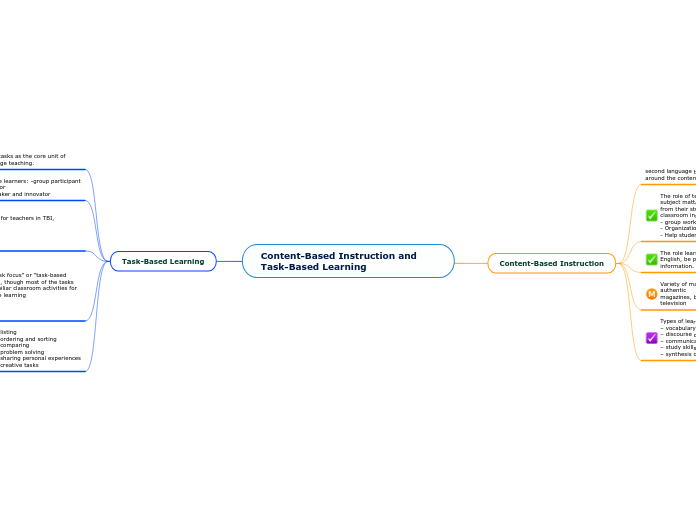arabera katerin soley 4 years ago
338
Content-Based Instruction and Task-Based Learning
Content-Based Instruction (CBI) and Task-Based Learning (TBL) are significant approaches in language teaching. TBL centers on using tasks as the primary unit for planning and instruction, emphasizing real-world activities.




